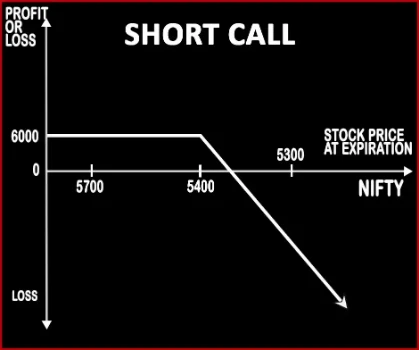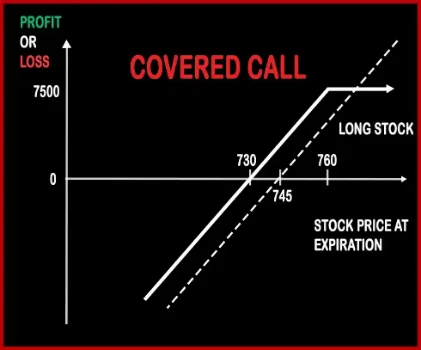Compare Strategies
| SHORT CALL | COVERED CALL | |
|---|---|---|

|

|
|
| About Strategy |
Short Call Option StrategyA trader shorts or writes a Call Option when he feels that underlying stock price is likely to go down. Selling Call Option is a strategy preferred for experienced traders. However this strategy is very risky in nature. If the stock rallies on the upside, your risk becomes potentially unquantifiable and unlimited. If the strategy |
Covered Call Option StrategyMr. X owns Reliance Shares and expects the price to rise in the near future. Mr. X is entitled to receive dividends for the shares he hold in cash market. Covered Call Strategy involves selling of OTM Call Option of the same underlying asset. The OTM Call Option Strike Price will generally be the price, where Mr. X will look to get out o .. |
SHORT CALL Vs COVERED CALL - Details
| SHORT CALL | COVERED CALL | |
|---|---|---|
| Market View | Bearish | Bullish |
| Type (CE/PE) | CE (Call Option) | CE (Call Option) |
| Number Of Positions | 1 | 2 |
| Strategy Level | Advance | Advance |
| Reward Profile | Limited | Limited |
| Risk Profile | Unlimited | Unlimited |
| Breakeven Point | Strike Price of Short Call + Premium Received | Purchase Price of Underlying- Premium Received |
SHORT CALL Vs COVERED CALL - When & How to use ?
| SHORT CALL | COVERED CALL | |
|---|---|---|
| Market View | Bearish | Bullish |
| When to use? | It is an aggressive strategy and involves huge risks. It should be used only in case where trader is certain about the bearish market view on the underlying. | An investor has a short term neutral view on the asset and for this reason holds the asset long and has a short position to generate income. |
| Action | Sell or Write Call Option | (Buy Underlying) (Sell OTM Call Option) |
| Breakeven Point | Strike Price of Short Call + Premium Received | Purchase Price of Underlying- Premium Received |
SHORT CALL Vs COVERED CALL - Risk & Reward
| SHORT CALL | COVERED CALL | |
|---|---|---|
| Maximum Profit Scenario | Max Profit = Premium Received | [Call Strike Price - Stock Price Paid] + Premium Received |
| Maximum Loss Scenario | Loss Occurs When Price of Underlying > Strike Price of Short Call + Premium Received | Purchase Price of Underlying - Price of Underlying) + Premium Received |
| Risk | Unlimited | Unlimited |
| Reward | Limited | Limited |
SHORT CALL Vs COVERED CALL - Strategy Pros & Cons
| SHORT CALL | COVERED CALL | |
|---|---|---|
| Similar Strategies | Covered Put, Covered Calls | Bull Call Spread |
| Disadvantage | • Unlimited risk to the upside underlying stocks. • Potential loss more than the premium collected. | • Unlimited risk, limited reward. • Inability to earn interest on the proceed used to buy the underlying stock. |
| Advantages | • With the help of this strategy, traders can book profit from falling prices in the underlying asset. • Less investment, more profit. • Traders can book profit when underlying stock price fall, move sideways or rise by a small amount. | • Profit from option premium, rise in the underlying stock and dividends on the stock. • Allows you to generate income from your holding. • Profit when underlying stock price rise, move sideways or marginal fall. |